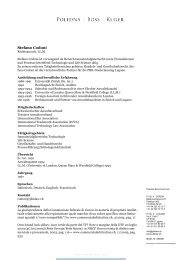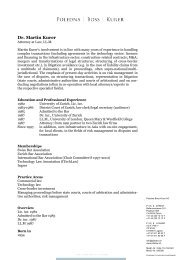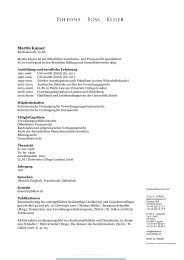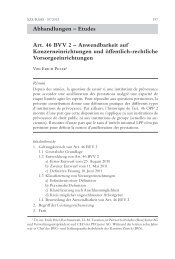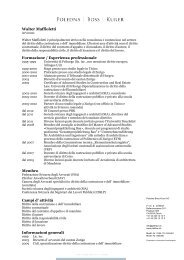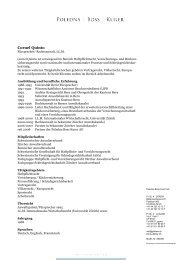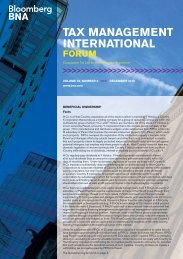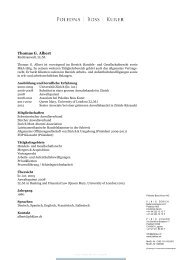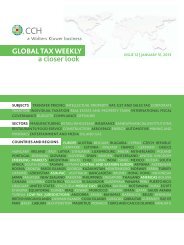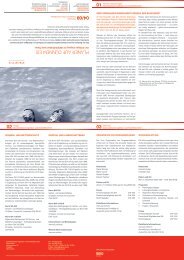721.8 kB - Poledna | Boss | Kurer
721.8 kB - Poledna | Boss | Kurer
721.8 kB - Poledna | Boss | Kurer
- No tags were found...
Create successful ePaper yourself
Turn your PDF publications into a flip-book with our unique Google optimized e-Paper software.
on including the profit from the domestic installationand maintenance services in the computationto "determine the profit level indicator."The Revenue argued that the domestic serviceswere "intricately connected" with the internationaltransactions; however the Tribunal drew the conclusionthat there was no connection, given that onlythree of the company's 40 customers had taken advantageof the subsidiary's installation services, andthat the Revenue had not recognised the domesticservices as part of the arm's length price.The High Court agreed with the Tribunal and confirmedthat the subsidiary's domestic services werenot international transactions due to the lack of involvementof the US company. As a result, therewas no discernable connection between these servicesand the services the subsidiary provided as internationaltransactions with the US company, andso the Revenue's appeal was dismissed.The judgment was delivered on May 6, 2013.http://lobis.nic.in/dhc/BDA/judgement/09-05-2013/BDA06052013ITA3532011.pdfpartners of which had occasionally provided servicesrelating to projects in India.The firm had no branches in India, but when CliffordChance representatives were in the country forlonger than 90 days, the Assessing Officer consideredthat this constituted a permanent establishment(PE) there.The assessee claimed that Clifford Chance employeesshould be subject to beneficial provisions containedin the UK-India DTA, and that thereforeonly services actually rendered in India should besubject to Indian tax; the Revenue claimed that (dueto the PE), all receipts relating to the Indian projectsshould be subject to income tax, and that furthermore,the DTA provisions (which related to the taxtreatment of fees paid to individuals) did not apply.The company appealed against the assessment,and the Commissioner of Income Tax (Appeals)(CIT(A)) agreed that there was no creation of a permanentestablishment, and that the company wasnot liable for tax in the years when their employeesspent less than 90 days in India. It based its decisionson an earlier Tribunal judgment.High Court: CIT v. Stratex Networks (India) PvtLtd (ITA 353/2011)IndiaThe Special Bench of the Mumbai Income TaxAppellate Tribunal was consulted during proceedingsconcerning a UK law firm, Clifford Chance,The Revenue then appealed to the Tribunal on thebasis that the previous Tribunal decision which benefitedthe company involved a law that had sincebeen amended with retroactive effect, which theRevenue insisted made all services received in Indiataxable regardless of where they were rendered.The company argued that the amendment did not91



